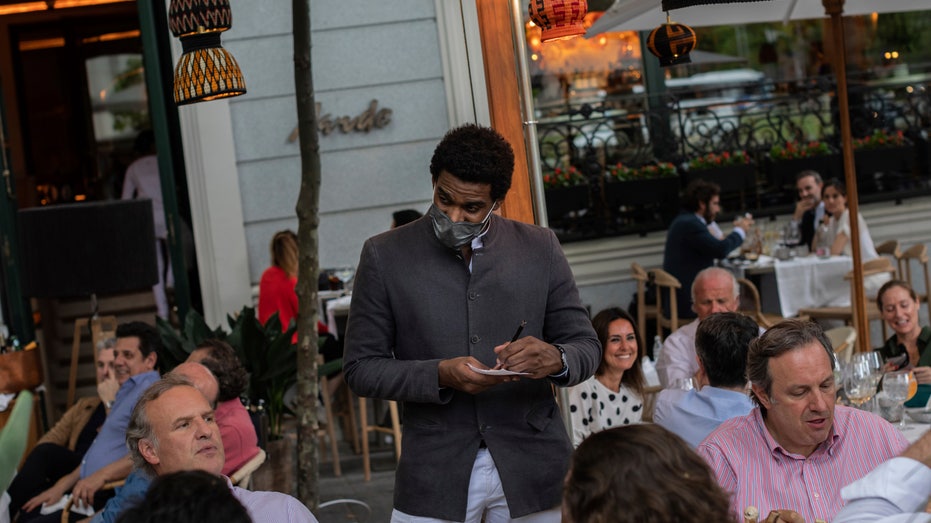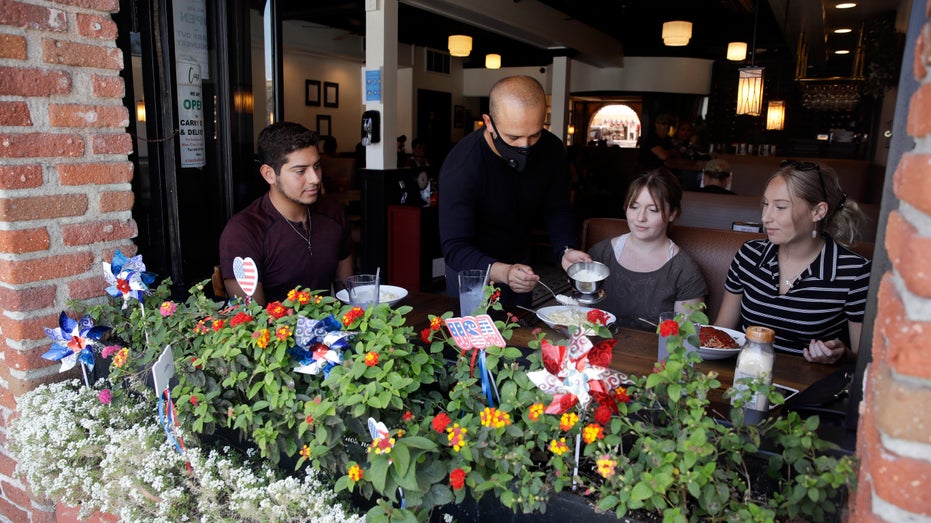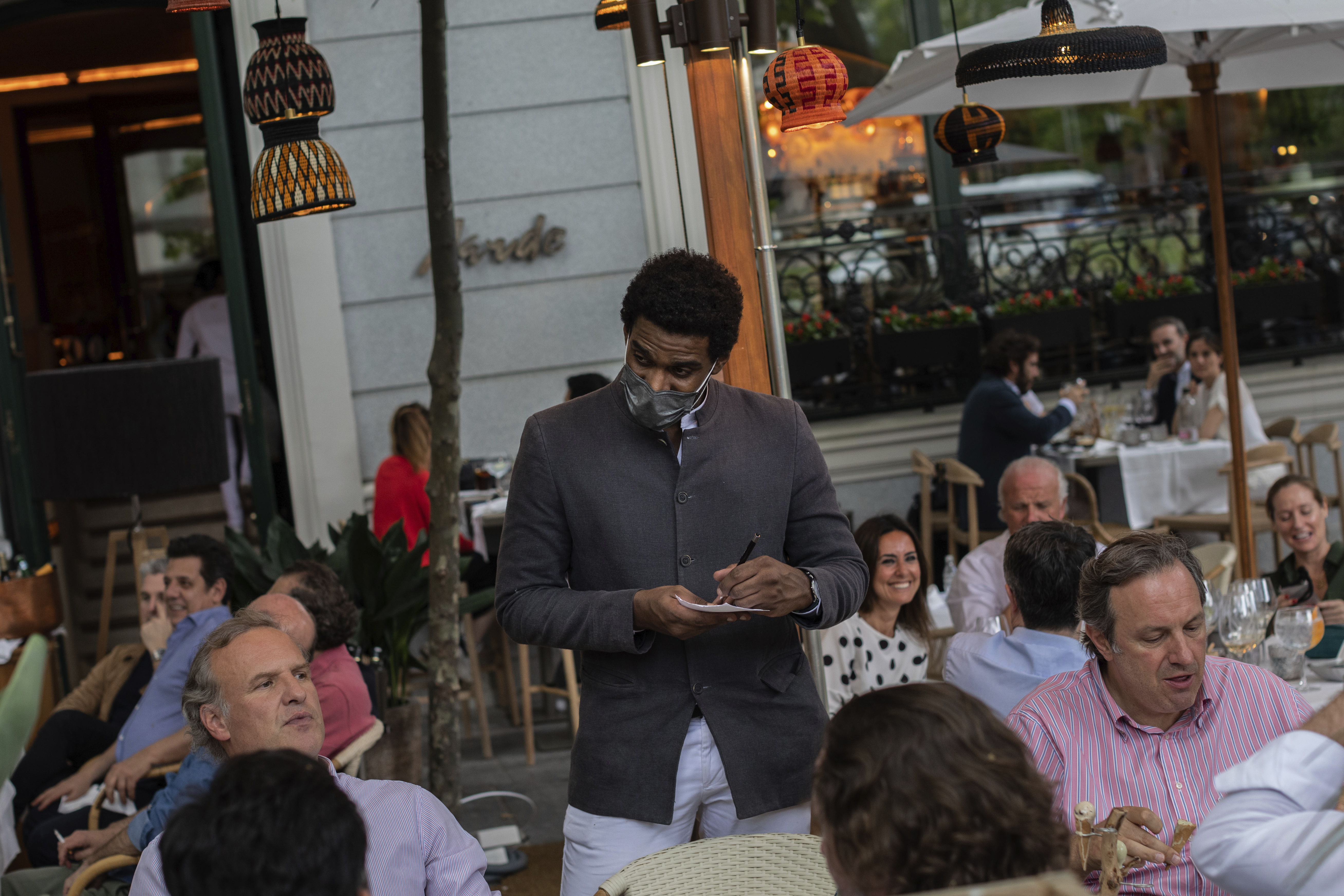Coronavirus 'super-spreaders' named as restaurants, fast food and hotels: Study
Study found link between density of 'super-spreaders' and increase in COVID-19 cases
Get all the latest news on coronavirus and more delivered daily to your inbox. Sign up here.
Scientists are examining the potential of a COVID-19 resurgence and how “super-spreader” businesses could risk contributing to the transmission of the coronavirus as states reopen from pandemic shutdowns.
Researchers identified sit-down restaurants, fast-food eateries and hotels as three of the most common so-called “super-spreader” businesses based on the frequency and duration of visits and the square footage of the businesses in a new “preprint” paper that has not yet been certified by peer review.
By looking at the density of those super-spreaders and the cumulative number of COVID-19 cases each week, the researchers found a 1 percentage point increase in the density of those businesses was associated with 5 percent more cases.
MISSOURI BAR OWNER DEFENDS PACKED POOL PARTY
“This may have important implications for how states reopen super-spreader businesses,” the paper states.
States across the U.S. are in different stages of reopening. Even as businesses do reopen, the Centers for Disease Control and Prevention recommends precautions like cloth face masks, social distancing and frequent sanitizing as people may be carrying the coronavirus while showing few or no symptoms of COVID-19.

A waiter wearing a protective face mask attends clients at a bar terrace in Madrid, Spain, Monday, May 25, 2020. (AP Photo/Bernat Armangue)
HOW CORONAVIRUS AFFECTS SALON, SPA REOPENINGS
The study looked at six states in New England, plus hard-hit New York and California. The authors said they plan to expand the study to all 50 states.
COVID-19 has sickened more than 1.6 million and killed more than 99,000 people in the U.S. as of Wednesday, according to Johns Hopkins University. New York remains the hardest-hit state in both total cases in deaths.

A waiter serves lunch to costumers Sunday, May 24, 2020, on Balboa Island in Newport Beach, Calif. (AP Photo/Marcio Jose Sanchez)
GET FOX BUSINESS ON THE GO BY CLICKING HERE
The researchers aim to build a tool to help policymakers and hospital officials monitor weekly traffic to super-spreader businesses in order to help “plan for a potential second wave.”
They also plan to study how the reopenings affect COVID-19 transmission.




















